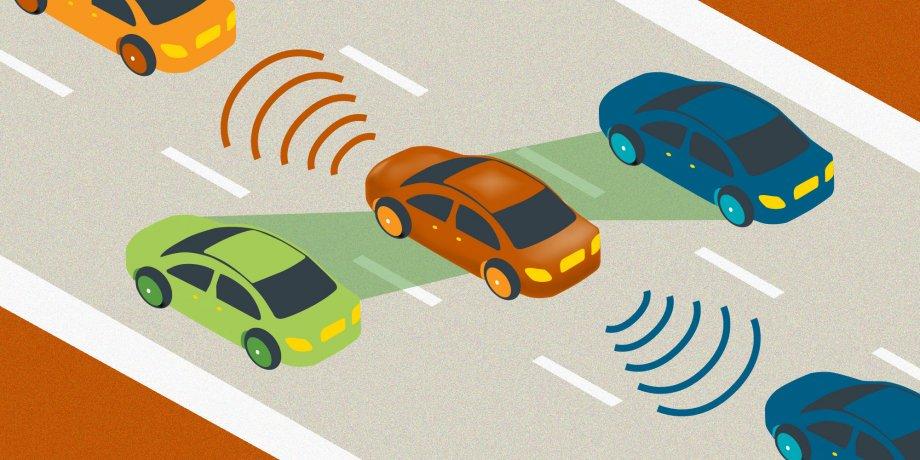
UT Austin collaborates with Bosch to drive automated research
Texas Computer Science has recently launched a collaborative research partnership sponsored by Bosch to explore new frontiers of research on reinforcement learning for automated driving. The partnership was envisioned by Professor Peter Stone of the UTCS faculty and Dr. Kay Stepper, the Senior VP who oversees Bosch’s automated driving efforts in North America.
The successful implementation of truly driverless vehicles is proving to be even more formidable than originally anticipated. “It’s not simply a straightforward application of existing technologies. Automated driving continues to present deep research questions,” says Dr. Stepper. "Combining UT’s expertise in robotics, AI, and machine learning with Bosch’s experience as a global provider of mobility technologies will help us meet those challenges.”


One of the primary goals for the partnership is to conduct published research. The Bosch team is currently embedded within Stone’s Learning Agents Research Group (LARG). Professor Stone happened to be Knox's advisor during his PhD program at UT, so for Knox, this project is like “being back home” in a way. “They've been great to work with,” says Stone. “They're a very positive influence on both the intellectual and social culture of the lab, and I look forward to publishing many impactful papers with them over the coming years.”
The researchers are also collaborating with other faculty members, such as Professor Scott Niekum, effectively acting as co-supervisors to some of their students. "Dr. Knox and Dr. Allievi have a unique blend of expertise in machine learning, human-robot interaction, and practical engineering that makes them great collaborators to have at UT,” says Niekum. He adds, “Bosch has extensive experience with real-world applications, such as vehicle automation and driver assistance, that serve as excellent motivation and benchmarks for the fundamental research we perform.”
The Bosch team and their UTCS collaborators are working on fundamental research on reinforcement learning, which is a sub discipline of machine learning. The way Knox explains their focus, “you could take almost any intelligent robot software – including that for automated vehicles – and split it into two parts: the sensing/perception side and the decision-
making side.” The joint research team is particularly interested in the latter, applying machine learning to improve automated decision-making behaviors.
Aside from this primary focus, they have the space to do research on broad fundamental topicsthat can apply to automated driving. “Part of what’s exciting about our research mission here is that we’re not constrained to doing applied research. We conduct research that we hope will have impact outside of automated driving as well,” says Knox. According to Stone, the work they are doing can have implications in a wide variety of applications– anything pertaining to sequential decision making. “I expect this partnership to increase both the breadth and impact of artificial intelligence and robotics research at UT,” says Niekum.
While choosing a location to set up its integrated research group, Bosch was looking for a metropolitan tech hub that also had a strong university research presence, making UT Austin an ideal candidate. The researchers established themselves onsite in July 2019, and already feel at home in the department. As they grow in their research capacity, they plan to collaborate with other professors as well. Although the COVID-19 outbreak has impacted their ability to work onsite, they are continuing their collaborative work remotely, are still part of LARG, and expect to fully resume onsite operation once the situation resolves.
Written by Spoorthi Krishnaraj in collaboration with Bosch.



